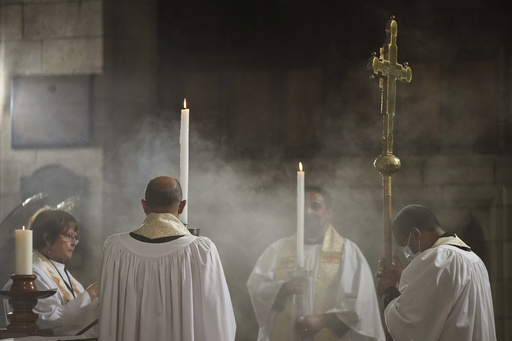JOHANNESBURG — The leadership of the Anglican Church in South Africa has acknowledged its failure to address sexual abuse allegations against its former member, John Smyth, who inflicted harm on children during the 1970s and 1980s in the United Kingdom and Zimbabwe before ultimately relocating to South Africa, where he passed away in 2018.
An independent investigation conducted in November found that the Church of England had concealed “horrific” abuses committed by Smyth, who had volunteered at Christian summer camps during those decades.
Recently, a panel in South Africa chaired by a retired judge issued a report stating that the Anglican Church ought to have reported Smyth, despite a lack of evidence indicating that he had engaged in similar misconduct while in South Africa. The panel underscored that the potential for him to reoffend was high.
Smyth had moved to South Africa in 2001, where he was involved in parish work until 2014. Archbishop Thabo Makgoba, the leader of the Anglican Church of Southern Africa, noted that the report revealed that critical warnings regarding Smyth’s past had not been communicated.
Makgoba explained, “Moreover, it critiqued our failure to inform another church, which he joined in 2014 and is not an Anglican congregation, of the alert we received in 2013 about his activities in the U.K. and Zimbabwe.”
After fleeing Zimbabwe in 2001 amid serious accusations of sexual, physical, and psychological abuse against over 100 children and men during the summer camps, Smyth integrated into the South African church.
Last year, Justin Welby, the former Archbishop of Canterbury, resigned following an inquiry that found he had not reported Smyth’s ongoing abuse to authorities when he became aware of it in 2013.
The inquiry revealed that the Church of England concealed Smyth’s “horrific” actions, with a comprehensive 251-page report stating that he had abused a total of 30 boys and young men in the UK and 85 in Africa over five decades.
On Tuesday, Makgoba expressed profound regret to church members for failing to protect congregants from potential harm.
“I and the Diocese apologize to our congregants and the broader community for not safeguarding individuals from that danger,” Makgoba stated.
The inquiry criticized the Church of England and other institutions for their inadequate responses to efforts by some individuals to raise awareness about the abuse, characterizing those responses as tantamount to a cover-up.



